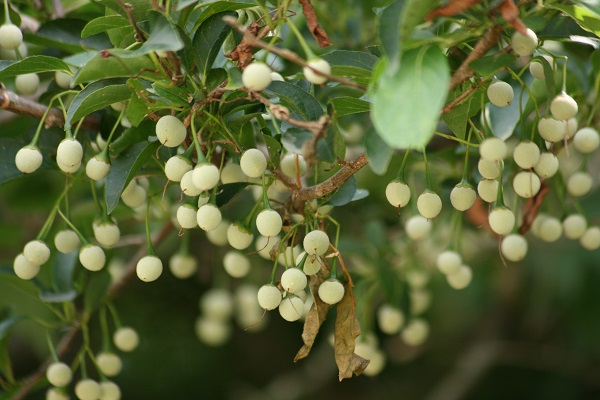EarthTalk®
From the Editors of E – The Environmental Magazine

Tree seed shortages compounded by decades of drought and recent extreme wildfire seasons mean the future of our forests could be in jeopardy. Credit: Yamanaka Tamaki, FlickrCC.
Dear EarthTalk: Is it true that a tree seed shortage is jeopardizing reforestation efforts across the American West following so many bad wildfire seasons in a row? If so, what can everyday people do to help — Helen K., Barre, VT
Wildfires have been a mainstay on the news of late, and in the United States and across the world we are witnessing fires that are more intense than ever before.
With warmer and drier conditions brought on by climate change, scientists project a 33 percent increase in wildfires by 2050 and a 57 percent increase by the end of the century. The Western U.S. is seeing the worst drought on record in the past 1,200 years, causing wildfires to spark earlier and more often.
As a result, public interest in reforestation efforts has skyrocketed. If a deforested area is left unattended to, the wrong species of trees might grow back, disrupting the ecosystem.
Trees use carbon dioxide (CO2) as they grow, so they are crucial tools in fighting climate change, functioning as what is called a “carbon sink” by capturing and “sequestering” the carbon. Not only is there bipartisan support for more tree planting, but corporations are also showing interest in mass tree plantings to sequester carbon to offset pollution. Companies are willing to invest not only in tree planting, but in the long-term survival of the trees once they are planted.
Increasing investment in tree planting and maintaining the trees as they mature is a great step forward for ecological restoration and carbon sequestration, but there is one flaw with this plan: There is a shortage of seeds.
According to the Department of Natural Resources (DNR), nurseries will need to more than double their production of seedlings to keep up with the current demand for trees.
While it may seem like a simple solution, as the climate changes, the behavior of seed-producing trees changes as well.
Seed scarcity is linked with temperature increases and drought conditions brought on by climate change. In periods of extended drought, trees respond by stopping the production of seeds. Additionally, especially at lower elevations, the warmer weather results in more insects that will eat away at the remaining viable seeds.
Harvesting seeds is a sensitive process; to ensure the long-term success of a tree, the seeds that are collected have to come from the same geographic region as well as the same elevation that you plan to plant the tree.
Another piece to this puzzle is the wildfires: Hotter, drier conditions are exacerbating the frequency and severity of wildfires, reducing the number of seed producing trees in the ecosystem.
This, in turn is putting more stress on nurseries to provide not just seeds but trees themselves.
Even though you may not have the knowledge to collect seeds yourself, you can be part of the solution! Increasing seedling production is an expensive task and donating to organizations like the National Forest Foundation or The Arbor Day Foundation can be invaluable in supporting reforestation. Volunteering with the U.S. Forest Service is another way to make a difference.
CONTACTS:
Volunteer with the Forest Service, fs.usda.gov/working-with-us/volunteers
Climate Change & Wild Fires, nytimes.com/2022/02/23/climate/climate-change-un-wildfire-report.html
Reforestation and Seed Shortage, wired.com/story/reforestation-is-great-but-were-running-out-of-seeds/
Challenges to Reforestation, fastcompany.com/90611106/theres-a-surprising-wrinkle-in-the-quest-to-plant-68-billion-trees
EarthTalk® is produced by Roddy Scheer & Doug Moss for the 501(c)3 nonprofit EarthTalk.
See more at https://emagazine.com
To donate, visit https//earthtalk.org
Send questions to: question@earthtalk.org
